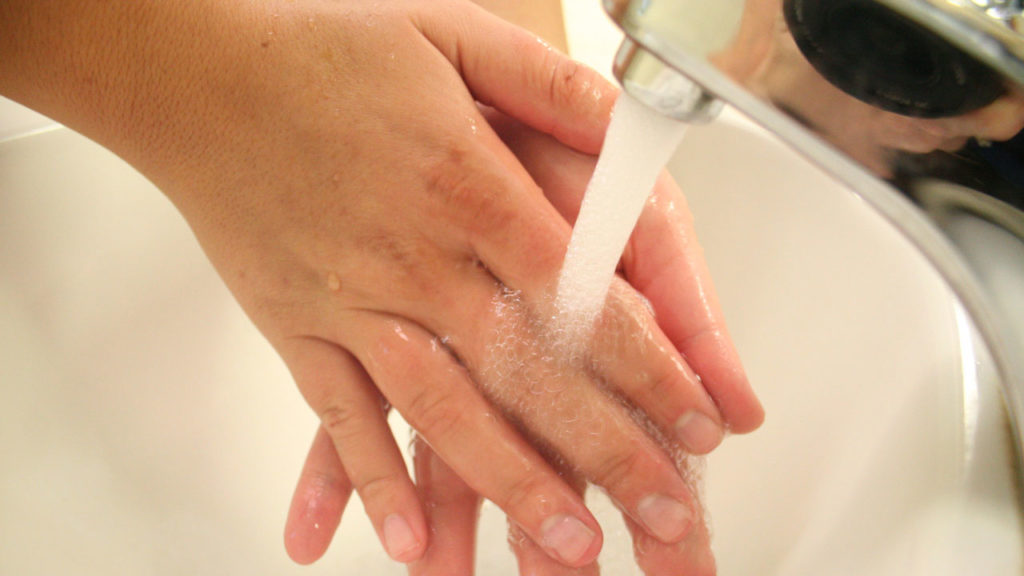
Have you ever actually timed 20 seconds when you’re washing your hands?
It’s longer than you think.
My wife said you sing “Happy Birthday” twice, and I didn’t believe her. Until I tried it. It took me 24 seconds to sing the song twice, but I’m a slow crooner.
This is the No. 1 advice that infectious disease experts are giving for COVID-19 prevention. Wash your hands often, and for longer than you think. Hand sanitizer with at least 60% alcohol is the best alternative, if soap and water aren’t available.
In fact, most of the Centers for Disease Control and Prevention’s tips for prevention are the same ones you hear every year in flu season:
- Avoid close contact with people who are sick.
- Avoid touching your eyes, nose, and mouth.
- Stay home when you are sick.
- Cover your cough or sneeze with a tissue, then throw the tissue in the trash.
- Clean and disinfect frequently touched objects and surfaces using a regular household cleaning spray or wipe.
There’s one extra tip though: Don’t freak out.
It’s legitimate advice because a) preparation is a more useful response than panic, and b) because stress can actually weaken your immune response.
Conversely, getting plenty of rest, exercise and a healthy diet can help you avoid stress and strengthen your immune response. NPR’s Allison Aubrey has some good advice on staying calm in the face of “pandemic panic.”
Gov. Bill Lee is stressing the need for calm as well. “We don’t want to understate the seriousness of the situation, but we also want to remind folks that keeping it in perspective is important,” Lee told reporters at a Thursday news conference. “The vast number of cases are mild.”
Based on what we’re hearing so far, official advice for Tennesseans is limited to the recommendations above. State health officials say coronavirus risk remains low in Tennessee, despite a confirmed case in Williamson County.
More: First Case Of Coronavirus Confirmed In Tennessee
So what does preparation look like?
You might think ahead about the ways your life would change if it becomes necessary to minimize your exposure to large groups of people. If working from home is a possibility for you, envision the nuts and bolts of that scenario. What sort of connectivity do you need? How will you communicate and collaborate with co-workers?
If you have kids, you might also think about how you’d handle them being home from school for a while. And if you need help talking to them about COVID-19, this cartoon should help.
Another thing the experts say: Skip the face masks. While they have been recommended for people with the virus to reduce the risk of spreading it, masks haven’t been shown effective at preventing healthy people from catching it. If healthy people resist the temptation to run out and buy up all the stock, we can avoid a shortage if we need them later on.

